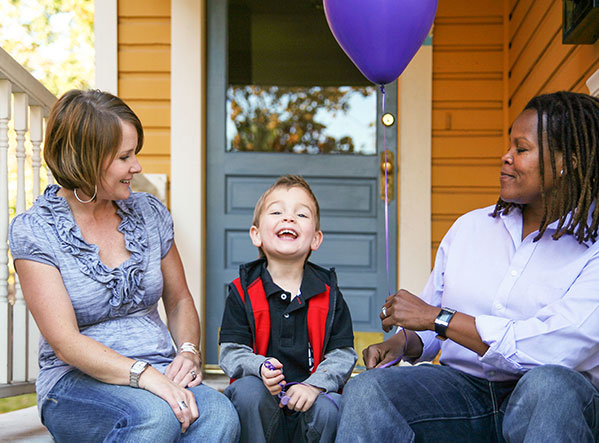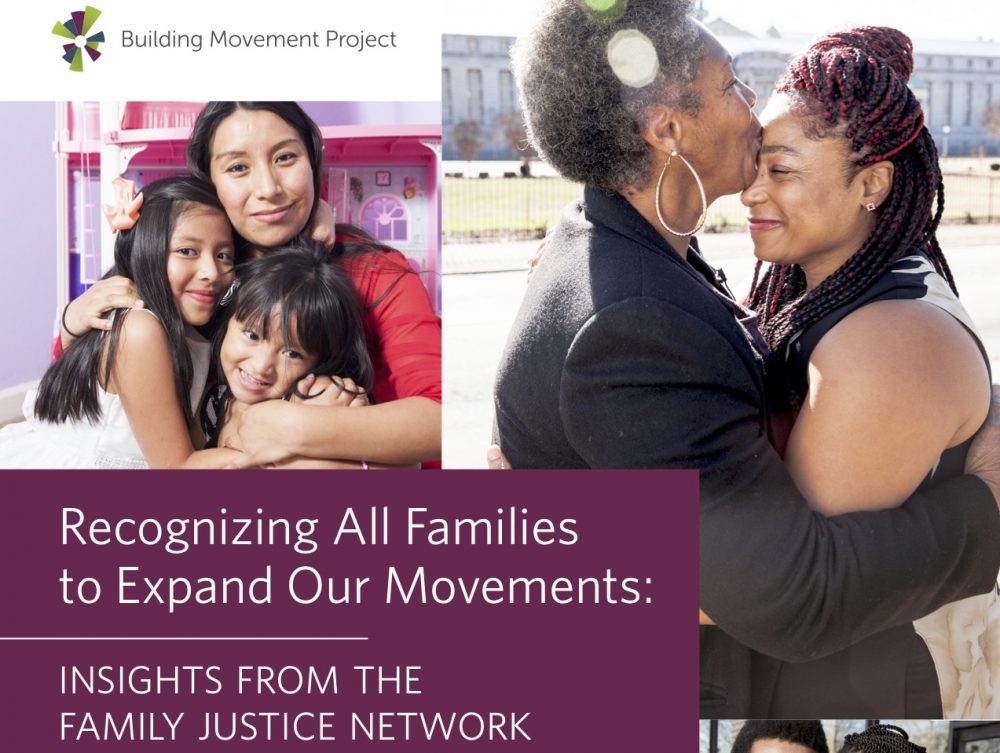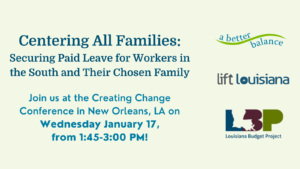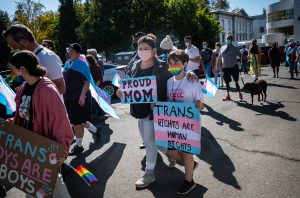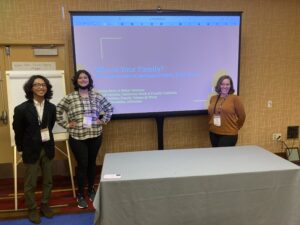Our Issues
Recognizing All Families
Families are not one size fits all and our laws shouldn’t be either. Many families include unmarried partners, extended relatives, and close loved ones who may not share a biological or legal relationship.
Unfortunately, our laws have allowed too many families to fall through the cracks. We need to ensure that everyone–no matter what their family looks like–can care for the ones they love without paying an impossible price at work.
ABB is working around the country to raise awareness about the diversity of family structures, and to enact workplace laws and policies that cover a wide range of caregiving relationships
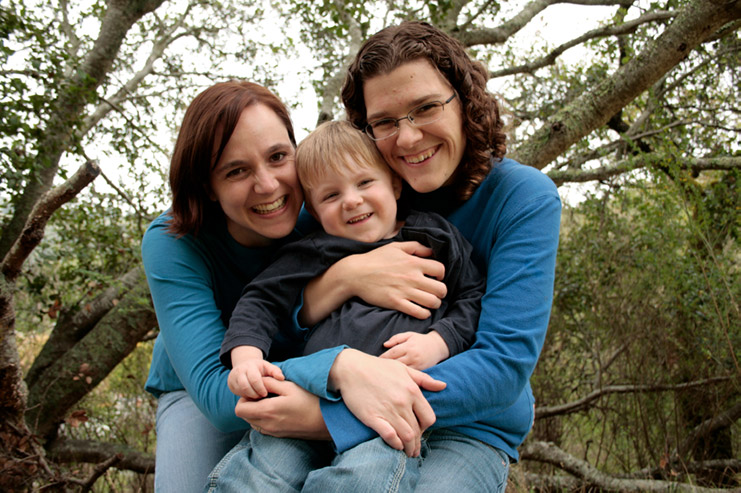
Expanding Family Definitions in Paid Leave Laws
We are pushing to pass workplace laws that broadly define family to include extended relatives and other loved ones who may not be biologically or legally related to the worker, so that all workers can access the time they need to care for those closest to them.
A Better Balance is working with local, state, and federal campaigns to ensure that our laws and policies include all families. As part of this work, A Better Balance and our partners at Family Values @ Work co-lead the Family Justice Network, which is working across social justice movements to advance protections that better reflect what families look like.
Together, as part of our effort to shift the national conversation to recognize the diverse forms family can take, we launched “This Is My Family,” a national campaign to build a movement to extend paid leave to all families. Through this campaign, we’ve heard from numerous workers and families who have shared their experiences caring or being cared for by their loved ones, including extended relatives and loved ones who aren’t legally or biologically related. It is clear that there is no one definition of family, but rather that families come in countless forms, and we must pass paid leave policies that protect workers and caregivers during critical life moments. Share your story and thoughts on what family means to you here and why it is important to pass paid leave laws that have an inclusive family definition.
Federal, State and Local Momentum
We have successfully worked with organizational partners across the country to pass paid leave laws that recognize all families. Five states have passed paid family and medical leave laws using our model family definition that allows workers to care for all of their closest loved ones. We have also helped to pass a model, inclusive family definition in a dozen state and local paid sick time laws, covering millions of workers.
Inclusive family definitions have a long track record of success. For over 50 years, the federal government has used and expanded upon similar family recognition in paid leave policies for federal workers. In 2015, we gathered significant support for the White House’s model family definition in an Executive Order guaranteeing earned paid sick time to employees of federal contractors. In 2020 with bipartisan support, Congress enacted the Families First Coronavirus Response Act, which regulations explained could be used to care for many of a worker’s closest loved ones. And most recently in 2021, the House of Representatives passed a landmark national paid family and medical leave program in the Build Back Better Act, which utilizes our model family definition and honors all families; we are continuing our work in the Senate to make this program a national reality. We continue to work toward building on these victories!
Learn more about our efforts to pass paid leave laws and policies that recognize all families.
The Federal Family and Medical Leave Act and LGBT Families
The federal Family and Medical Leave Act of 1993 (FMLA) requires certain employers to provide unpaid leave for up to 12 weeks for employees to care for a new child or seriously ill family member, to recover from their own serious health condition, or to deal with certain military family obligations. Unfortunately, 40% of all workers are not eligible for FMLA coverage, and the law’s definition of family is narrow. Despite this narrow definition, the FMLA’s recognition of same-sex couples and their children has improved in recent years.
Learn more about how the FMLA applies to LGBT workers and their families.
Resource Articles
82.2%
of households in the U.S. do not fit the “nuclear family” model of a married mom, dad, and their children
64 mil
Americans live in multi-generational family households, more than double the number who lived in such households in 1980
21.3%
As of 2020, percentage of Americans ages 25 and older who have never married—an increase from 9% in 1960
58%
of LGBTQ workers said that they have been called on by close friends or chosen family for health-related needs

